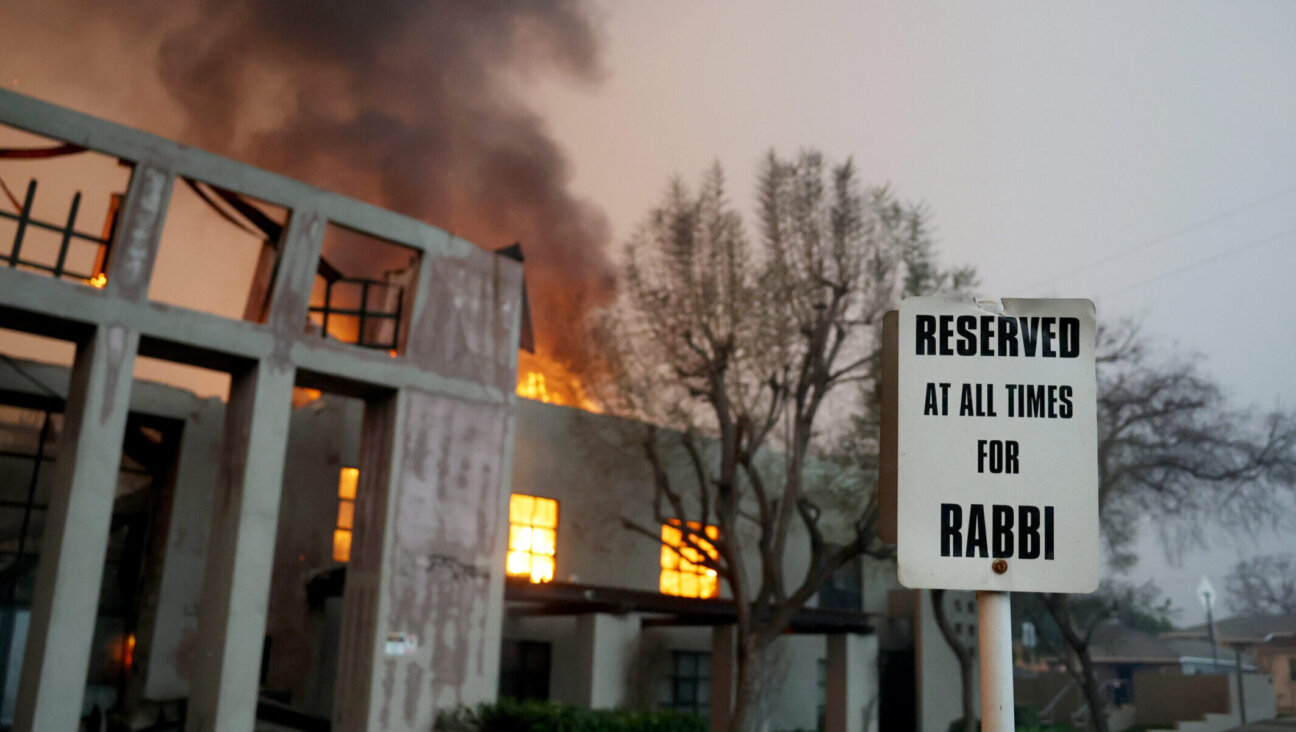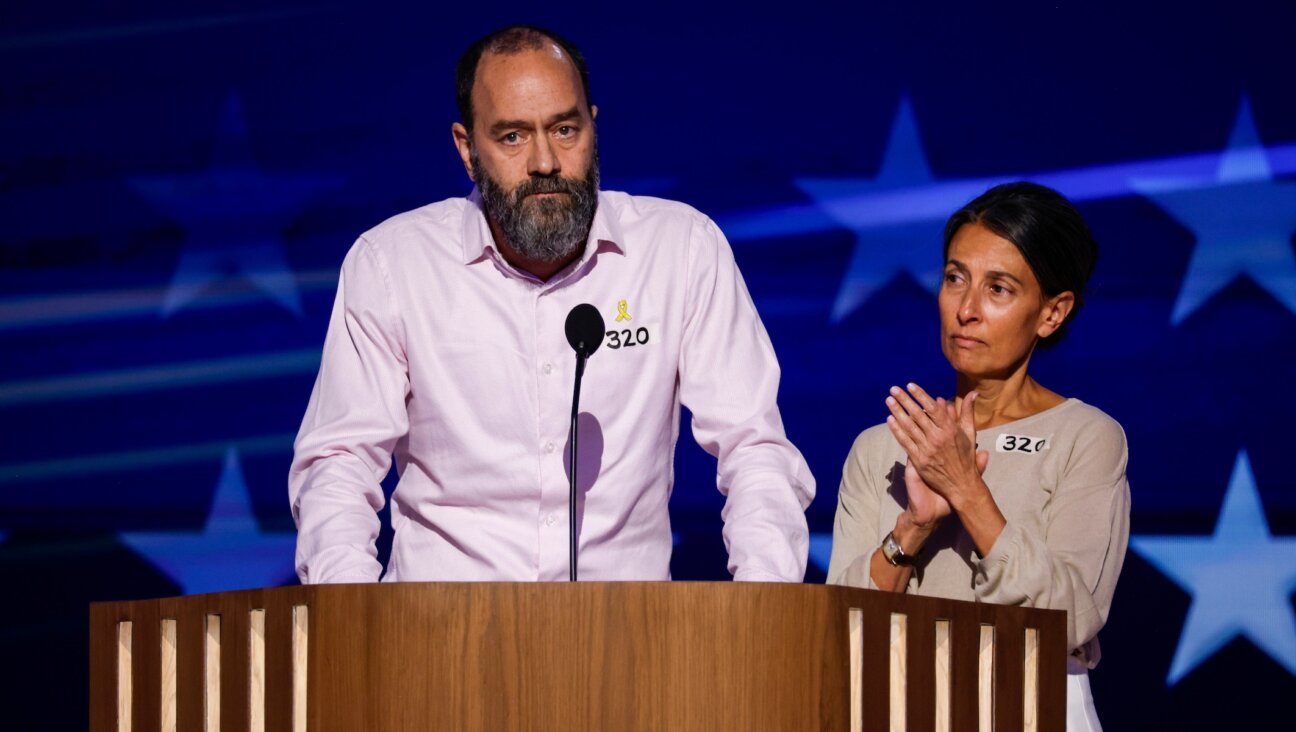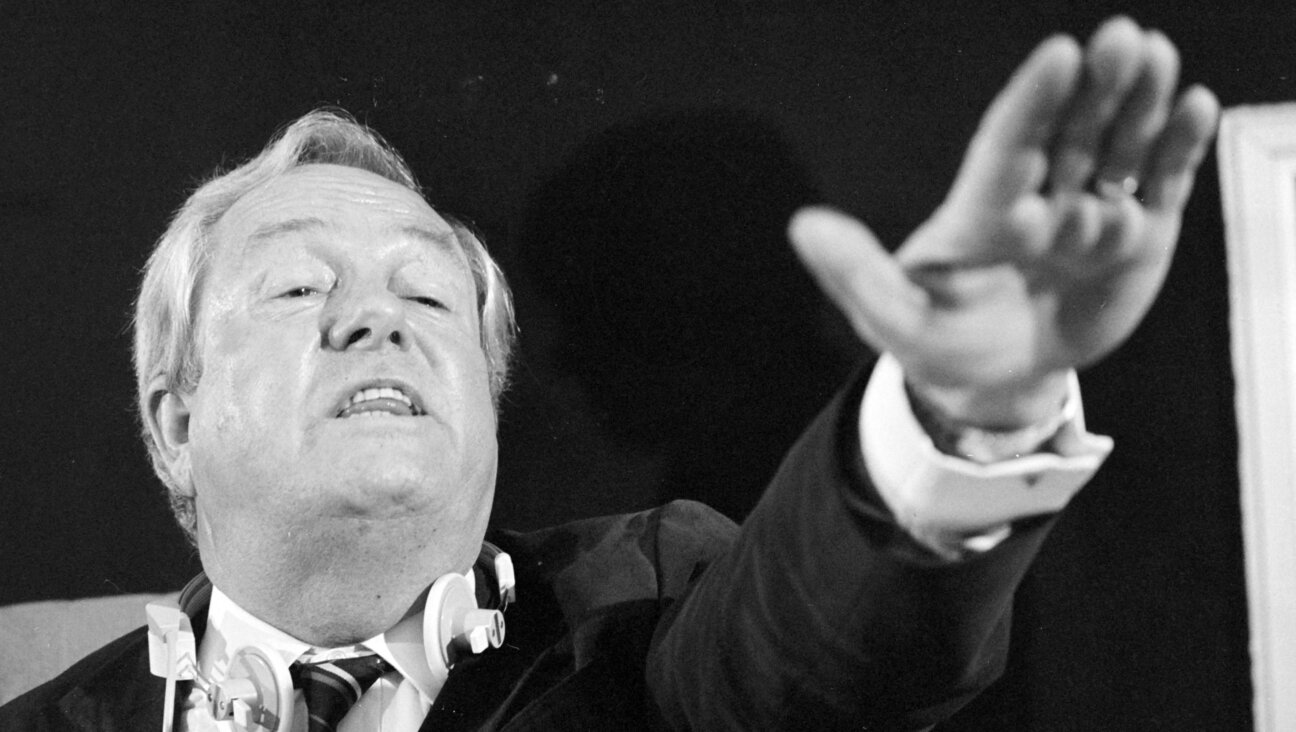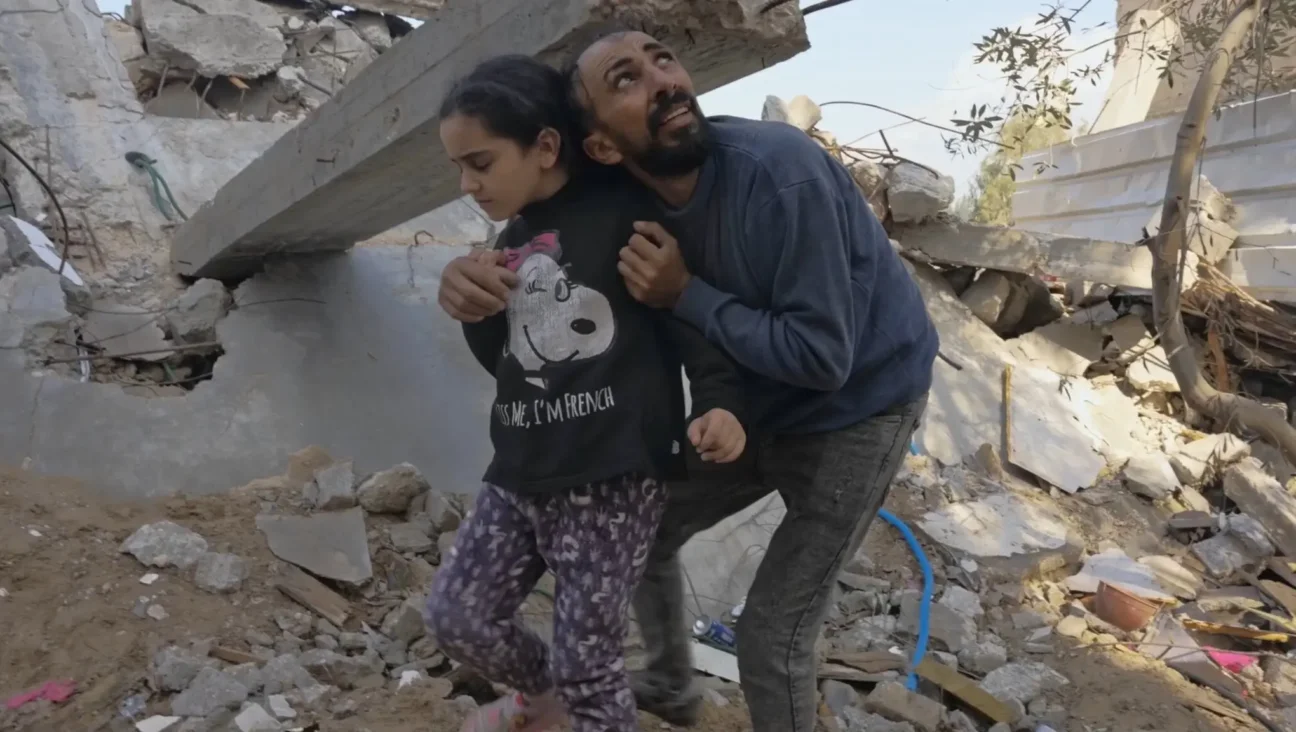Serafim Sabaranskiy, a Ukrainian Jew who enlisted to defend his country, dies at 29 in a Russian airstrike

Serafim Sabaranskiy, a Ukrainian Jew who volunteered to defend his country, was killed by a Russian missile in Kharkiv, Ukraine, March 13, 2022. (Courtesy of Yuliya Pototska)
(JTA) — Serafim Sabaranskiy was a proud Jew and son of Ukraine.
The 29-year-old, an active member of the Hillel chapter in his hometown of Kharkiv, saw the war coming early. He bought combat gear on Feb. 23, a day before the Russian invasion began, and as soon as the fighting started, he enlisted with the armed forces defending the city. His brothers in arms say he had saved several of their lives.
On Sunday, he was killed in action, as one of the hundreds of Russian missiles fired in recent weeks landed near his position.
Yuliya Pototska, director of the Hillel in Kharkiv — which was leveled by Russian bombs earlier this month — recalled Sabaranskiy’s avid participation in local Jewish life and his independence of spirit.
“He knew what he wanted and no one could turn him left or right, he was very strong,” Pototska told the Jewish Telegraphic Agency.
Pototska, who left soon after the bombing that destroyed the Kharkiv Hillel site in the city’s historic Constitution Square, interacted with Sabaranskiy during Shabbat dinners and havdalah ceremonies that end the Jewish sabbath on Saturday evenings. Two years ago, he joined a Hillel-sponsored trip to Israel through the Birthright program.
Sabaranskiy displayed his characteristic resolve in a short video interview captured about a week before he died. Armed and dressed in a makeshift uniform, the red-headed Sabaranskiy is seen on a city street speaking to the camera with a response to the assertion by Russian President Vladimir Putin that his forces are seeking to “de-Nazify” Ukraine.
“How can you believe these claims? I’m Jewish, and I’m safe in Ukraine. I don’t need your help. Get out of Ukraine,” Sabaranskiy says in the video, according to a translation by Pototska.
Sabaranskiy’s mother supports Putin and had left Kharkiv for Russia following its annexation of Crimea in 2014. Her support for Russia was so complete that she refused to believe a Russian airstrike had killed her son, according to Pototska. Arguing that Russian troops had entered the country to save people from Nazi persecution, she blamed Ukraine’s own government.
Hillel International posted the news on social media, saying Sabaranskiy “died a hero.” In the United States chapters of the Hillel are affiliated with specific universities, but in Ukraine and elsewhere, Hillel sites function more as Jewish community centers for young adults into their thirties in dozens of countries around the world.
Sabaranskiy’s Instagram account documents the love he had for traveling and spending time outdoors, especially on his bike and with his pet dog.
“I’ve known him since he was four,” a family friend wrote in a Facebook post. “It’s trite to say, but before my eyes a little red-haired boy turned first into a mischievous boy from elementary school, then into a stubborn teenager, then into a confident young man. It hurts to know that there will be no more transformations.”
—
The post Serafim Sabaranskiy, a Ukrainian Jew who enlisted to defend his country, dies in a Russian airstrike appeared first on Jewish Telegraphic Agency.
A message from our Publisher & CEO Rachel Fishman Feddersen

I hope you appreciated this article. Before you go, I’d like to ask you to please support the Forward’s award-winning, nonprofit journalism so that we can be prepared for whatever news 2025 brings.
At a time when other newsrooms are closing or cutting back, the Forward has removed its paywall and invested additional resources to report on the ground from Israel and around the U.S. on the impact of the war, rising antisemitism and polarized discourse.
Readers like you make it all possible. Support our work by becoming a Forward Member and connect with our journalism and your community.
— Rachel Fishman Feddersen, Publisher and CEO























